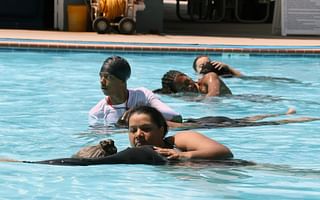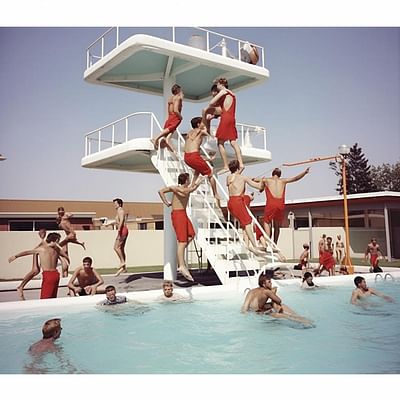🌊 Lifeguard Training and Risks in Water Sports 🏊♀️
Lifeguard Training and Risks in Water Sports
Test your knowledge about the potential risks for lifeguards during water sports and their training requirements.
Lifeguard Training and Risks in Water Sports
When it comes to lifeguarding during water sports, there are various risks that lifeguards face. From physical dangers to environmental hazards and psychological pressures, lifeguards must be well-prepared to handle any situation that arises. Let's test your knowledge about these risks and the training requirements for lifeguards.
Physical Risks:
Lifeguards are not immune to the dangers of the water. They can face risks such as drowning, injuries from rescues, exhaustion, dehydration, and sunburn. It's essential for lifeguards to be physically fit and trained to handle these challenges. Special training is required to ensure lifeguards are equipped with the necessary skills to respond effectively in emergency situations. Take a quiz on the physical requirements of lifeguard training.
Environmental Risks:
Water conditions, weather conditions, wildlife, and pollution are some of the environmental risks that lifeguards may encounter during water sports. These factors can significantly impact the safety of both swimmers and lifeguards. Lifeguards must be aware of their surroundings and be prepared to adapt their strategies based on changing environmental conditions.
Psychological Risks:
The pressure of being responsible for others' safety can pose a significant psychological risk for lifeguards. Lifeguards must remain calm and focused in high-stress situations, making split-second decisions that can mean the difference between life and death. Training programs often include psychological preparedness to help lifeguards manage the mental and emotional challenges they may face on the job.
Training Requirements:
Given the risks associated with lifeguarding during water sports, special training is required for lifeguards. This training goes beyond standard lifeguard certification and equips lifeguards with the skills and knowledge specific to water sports. Lifeguards must be proficient in water rescue techniques, first aid, CPR, and AED usage. Ongoing training and regular practice are crucial to maintaining these skills and staying up-to-date with the latest safety protocols. Learn more about what to expect from lifeguard training.
Becoming a lifeguard is not just about wearing a swimsuit and sitting in a chair. It requires dedication, physical fitness, and a commitment to ensuring the safety of others. Lifeguards play a vital role in preventing accidents, responding to emergencies, and providing reassurance to swimmers.
If you're considering a career as a lifeguard, it's important to understand the risks involved and the training required. By being well-prepared and knowledgeable, you can make a significant difference in ensuring the safety of those enjoying water sports.
Remember, lifeguarding is a noble profession that requires continuous learning and improvement. Stay updated with the latest training techniques, equipment, and safety protocols to be the best lifeguard you can be. Your dedication and commitment can save lives and make a positive impact on your community.












